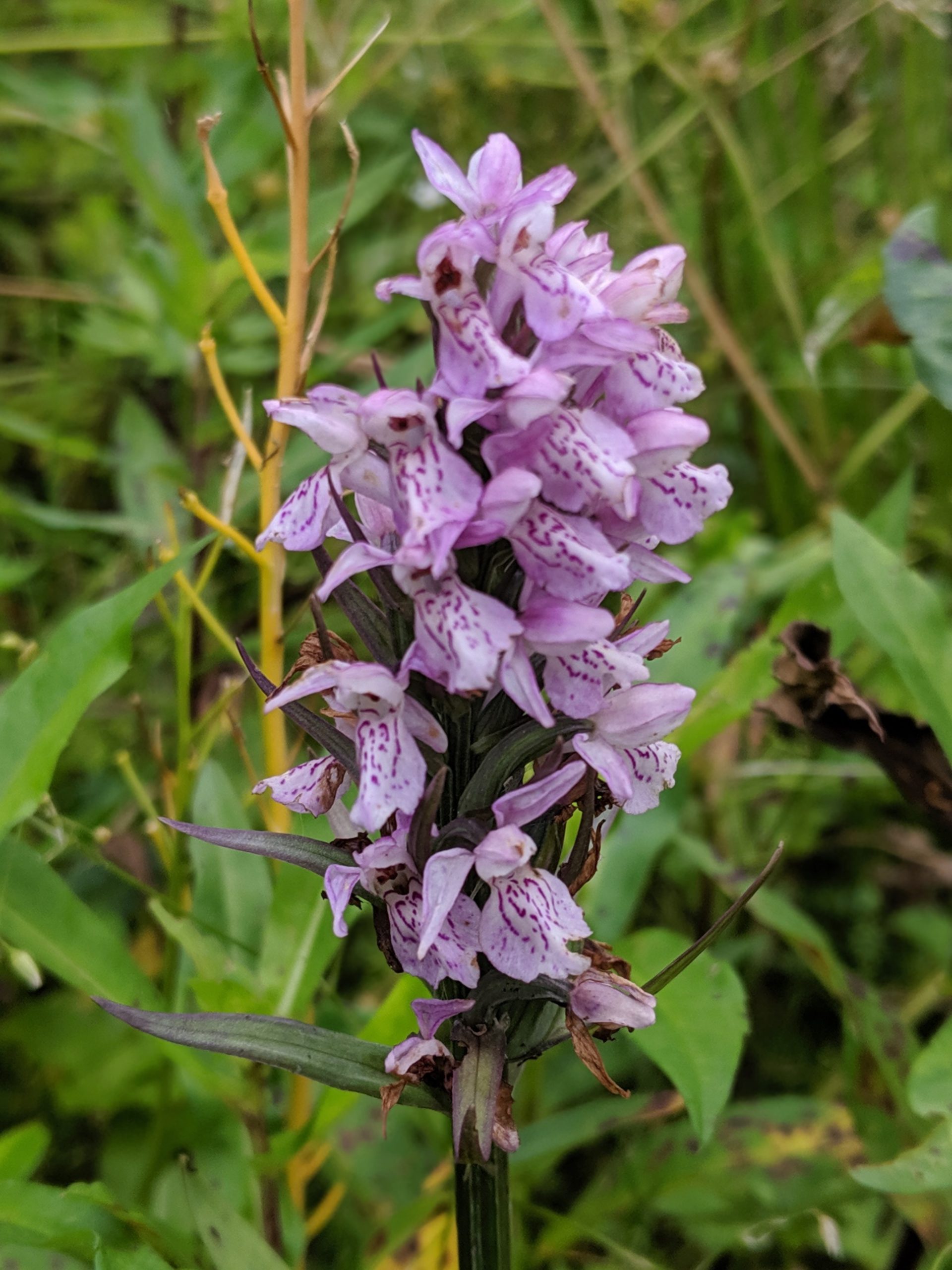The European Leopard Marsh Orchid
(Dactylorhiza praetermissa var. junialis (Verm.) Senghas)
This unusual species of orchid can be found in Pippy Park in July and
early August. It was initially discovered during environmental
monitoring of construction of Outer Ring Road in 1994. The area received
special protection within the Park and several specimens were
transplanted to MUN Botanical Garden.
It’s unclear how they came over from Europe but it was likely introduced from South England, an area of high migration to Newfoundland. The area in the Park was previously known as Halliday’s farm, which held livestock from England, so seeds may have ingested by livestock and deposited in their waste (Pippy Park Management Plan, 2003). Intensive conversion to pasture likely helped the plant propagate, but a change into parkland has meant more competition as trees and shrubs fill in.
The densely-flowered purple racemes are easy to find but the main distinguishing feature of this orchid is its spotted leaves. The plant will lose colour in both its flowers and spots as the season progresses. The best time for viewing is typically the first week of August, around the same time that raspberries ripen.
St. John’s is one of only two known sites of this plant in North America, the other being Timmins Ontario. Ours differs by having larger spurs and less-defined lip markings (H. J. Clase and S. J. Meades, 1996).
Be on the lookout for spotted orchids again next July.
Author: Nick White
Charlie Horwood identifying the Leopard Marsh Orchid (Photos: Nick White).

